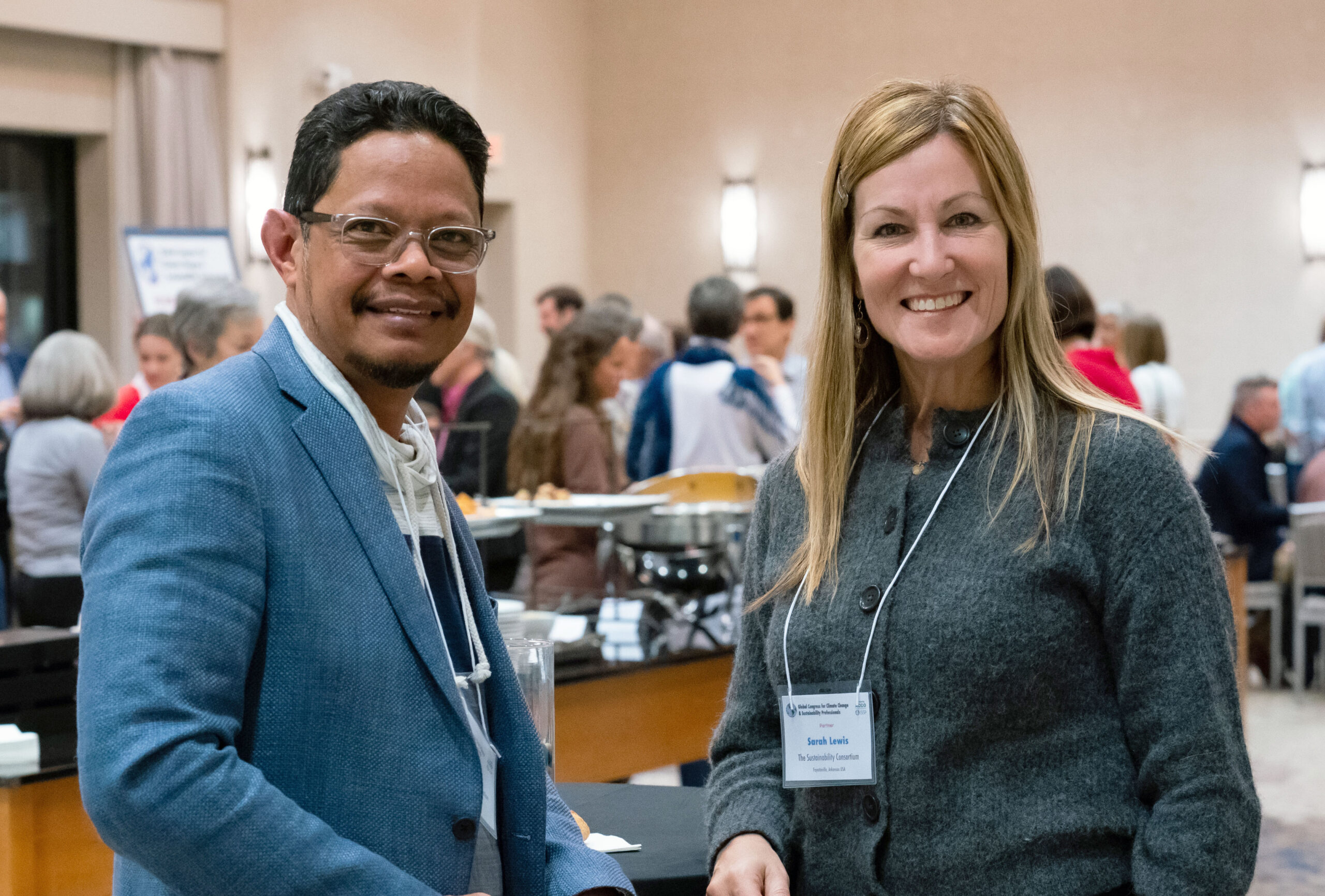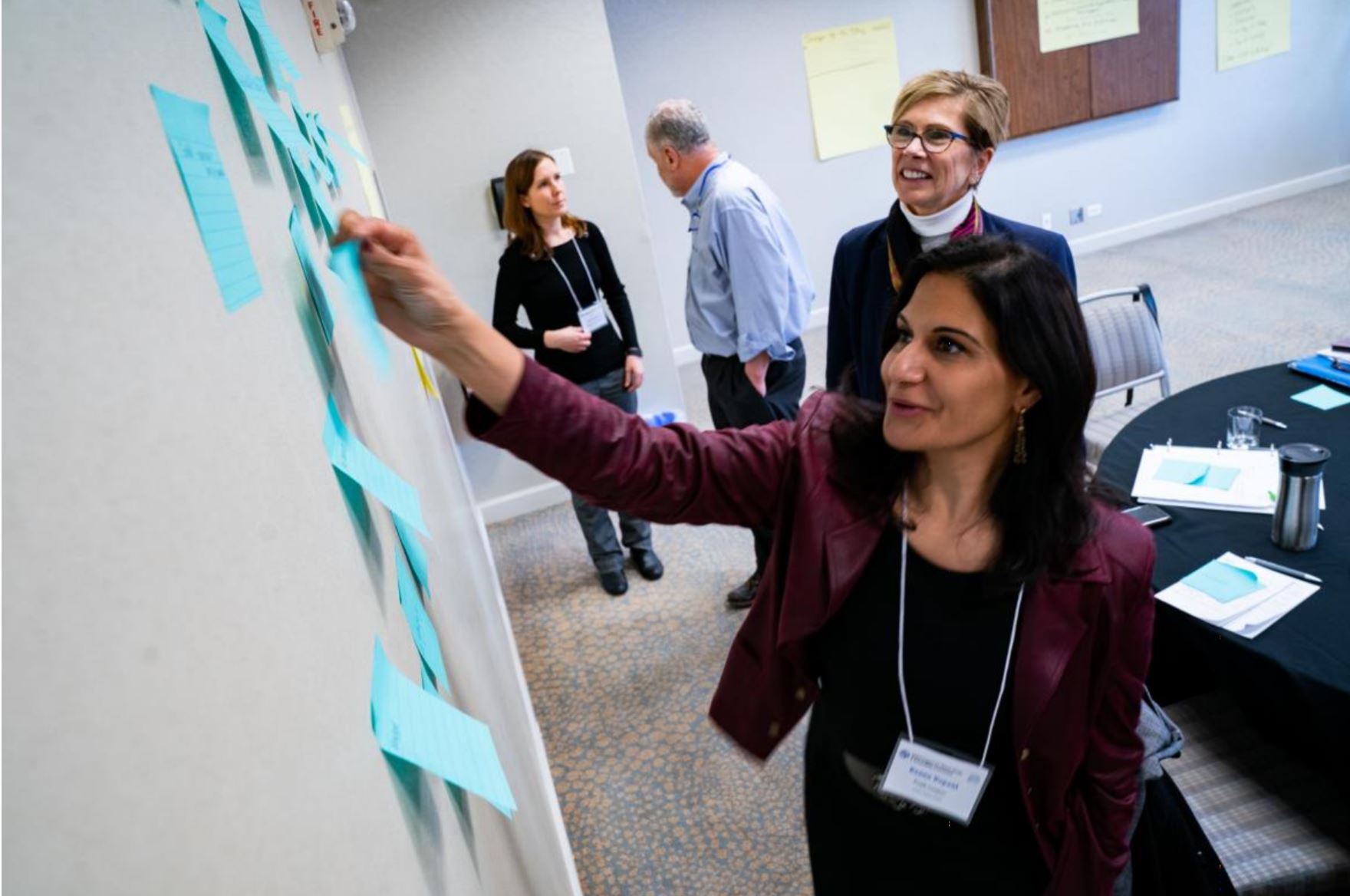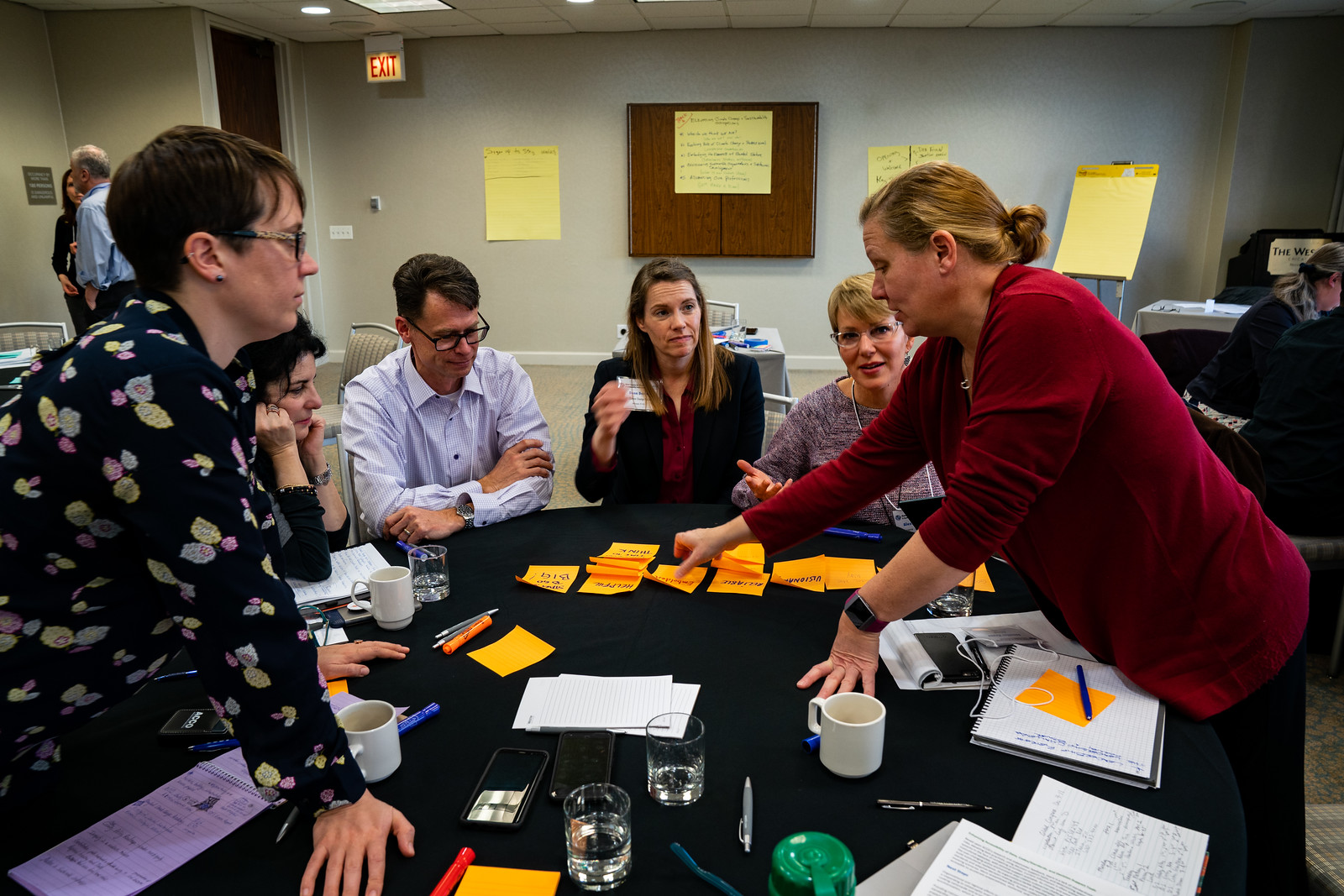Pop culture has long driven awareness where critical topics are concerned. Sustainability has been one of the most popular topics recently. We have seen the subject highlighted by Leonardo DiCaprio during his Academy Award speech, where he called out the reality of climate change. It’s prevalent on social media as well. Just look at youth activist Greta Thunberg’s school protest and subsequent viral video where she implores society to take action.
Conversations surrounding sustainability are increasingly embedded within culture. They’re becoming ingrained in investor expectations and demand has increased for qualified, connected professionals working to create solutions. The International Society of Sustainability Professionals (ISSP) has been designed to educate, equip and support professionals in this business area. ISSP serves as a common thread among sustainability professionals, admonishing the barriers of isolation facing this rapidly growing community.
 Founded 17 years ago, ISSP was started by four consultants working from Portland, Oregon. As they compared notes on their clients, they noticed an emerging trend. Companies had started enlisting employees to spearhead sustainability efforts. Moreover, they found that these employees had energy efficiency, conscientious sourcing and social outcomes shoehorned into their job descriptions, with “sustainability” added to their titles.
Founded 17 years ago, ISSP was started by four consultants working from Portland, Oregon. As they compared notes on their clients, they noticed an emerging trend. Companies had started enlisting employees to spearhead sustainability efforts. Moreover, they found that these employees had energy efficiency, conscientious sourcing and social outcomes shoehorned into their job descriptions, with “sustainability” added to their titles.
“It felt like they were free climbing, attempting to traverse a very rugged terrain without ropes or tools or maps,” Marsha Willard, a founding consultant said. “These people needed a club.” And so, ISSP was born.
That initial vision to build ISSP as a community of sustainability practice has grown to include members on every inhabited continent of the globe and spawns a network of regional chapters. ISSP has unified the profession’s body of knowledge and codified it as part of the Sustainability Excellence Professional credentials.
Until recently, ISSP primarily served the vanguard of leaders who were among the first Chief Sustainability Officers for their companies and institutions. This group has grown considerably over the past few years. The once small, expert community has expanded as more organizations have prioritized sustainability, creating a greater need for qualified practitioners to drive impact.
 Growing in number by 50% during 2021, ISSP members form the foundation of the organizations’ network of sustainability professionals, working across sectors and around the globe. As part of ISSP’s expansion, they’ve become increasingly international. Today, one in four members resides outside of North America. South Asia, Southeast Asia and sub-Saharan Africa are among the fastest growing regions for ISSP members, but growth continues in every world region.
Growing in number by 50% during 2021, ISSP members form the foundation of the organizations’ network of sustainability professionals, working across sectors and around the globe. As part of ISSP’s expansion, they’ve become increasingly international. Today, one in four members resides outside of North America. South Asia, Southeast Asia and sub-Saharan Africa are among the fastest growing regions for ISSP members, but growth continues in every world region.
In fact, the societal shift that took place in 2020 was the catalyst for many changes in sentiment, where prioritizing the environment and sustainability are concerned. According to a 2021 study conducted by communications consultancy firm Porter Novelli, 73% of Americans said that they are more concerned than ever before about the impacts of the climate crisis. This growing awareness has been a driving force behind ISSP’s commitment to the UN’s Sustainable Development Goals (SDGs).
These SDGs — or Global Goals — are a collection of 17 interlinked global goals designed to be a “blueprint to achieve a better and more sustainable future for all.”
ISSP is also committed to supporting the professionals who are needed to make implementation of this internationally recognized framework for sustainability progress a reality by 2030. To create the needed subject matter experts to accomplish their goal, ISSP has created the Sustainability Excellence Associate (SEA) and Sustainability Excellence Professional (SEP) credentials to educate and activate their commitments.
The critical programming provided by ISSP could be a deciding factor in how well companies are equipped to deal with the needed changes to curtail our climate crisis. Engagement and collaboration have been critical in connecting members in key activities to deliver ISSP’s mission. To accomplish this, the organization has implemented opportunities for sustainability professionals to share ideas and resources through Local Chapters, online, their members-only platform, and larger-scale in-person events that provide a space for like-minded professionals to advance their network and knowledge.
Through these professional development courses, ISSP offers instructor-led educational opportunities designed to aid in professional development and support practitioners throughout their career. Additionally, ISSP serves as a facilitator for dialogue surrounding the ever-changing topic of sustainability and the standards of excellence for the profession.
As a recognized leader, ISSP will continue to lead critical conversations and serve as a unifying force for the sustainability discipline, whether through work they’ve done to create a 16-page Global Congress Report highlighting the key takeaways and opportunities for professional sectors, or through work with TEDxISSP, which took place during Earth Month in 2021. ISSP is a valuable source of truth promoting the urgency of the moment, the transformation needed and the action lo it will take to solve our planet’s environmental crisis.

A Call to Action
The United Nation’s Sustainable Development Goals were adopted by all UN Member States in 2015, as a part of the 2030 Agenda for Sustainable Development to address global challenges. These 17 goals range from “enhancing the use of enabling technology … to promote the empowerment of all women and girls” to increasing “the share of renewable energy in the global energy mix.” For more information, visit www.sdgs.un.org.

Connect & Learn at ISSP
ISSP’s self-paced learning was designed with sustainability industry experts. The offerings are suitable for anyone seeking introductory knowledge across sustainability themes. The advanced series will give seasoned professionals updates on deep-dive concepts. ISSP’s courses are expert-led and designed to aid a variety of learning levels.
Learn more by visiting www.sustainabilityprofessionals.org.






